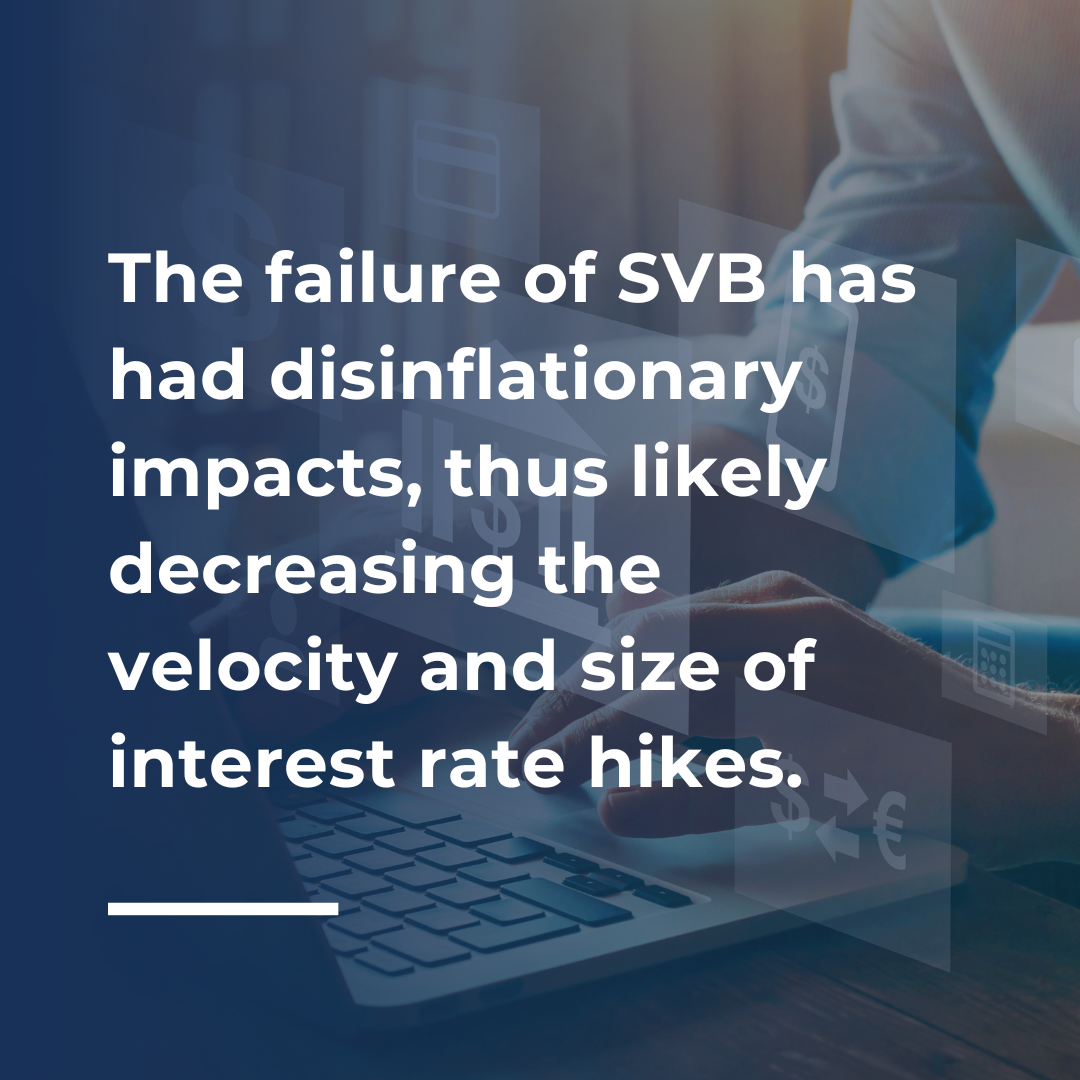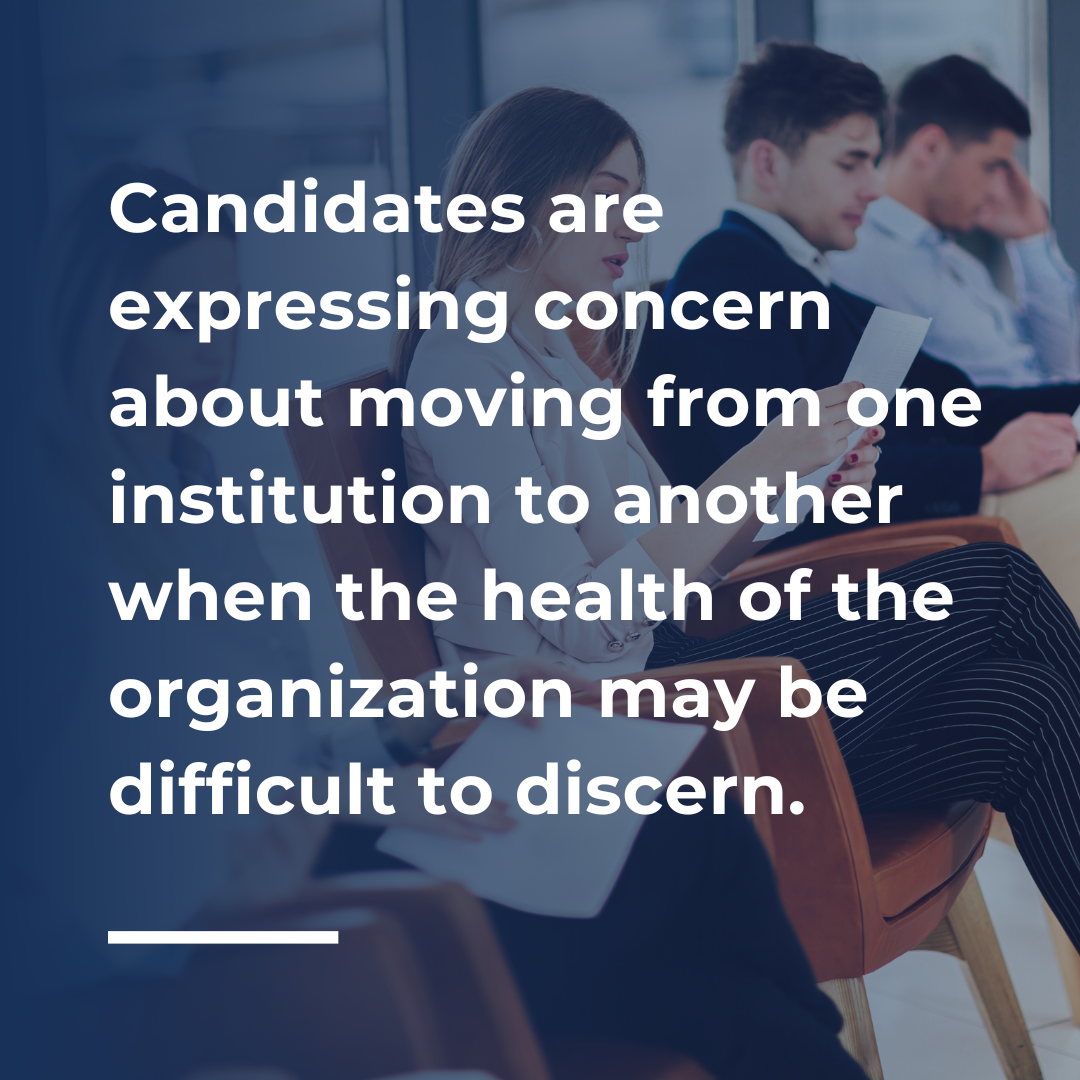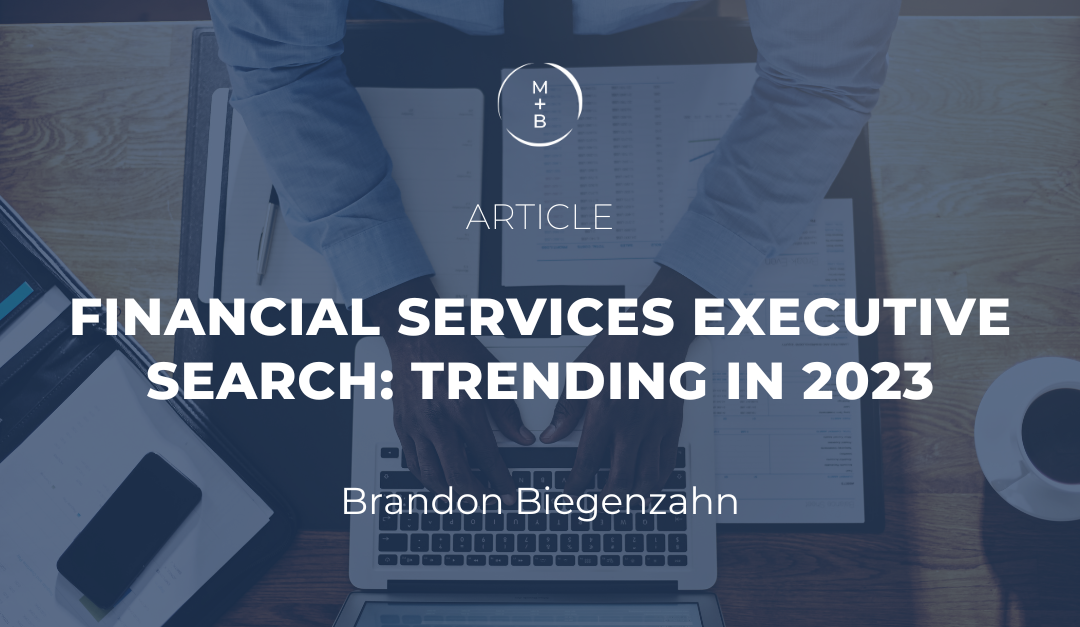2023 has been, to say the least, an interesting time in banking. It’s likely that Michael Lewis (author of The Big Short and Money Ball) will write a book about the current state of affairs. So, after a quarter and a half of the year, what have things looked like for executive hiring?
A quick recap is worth sharing. Across all industries, from a leadership hiring standpoint (SVP-level and above), 2022 stands as both the peak of demand for executive leadership in Q2, and the return to pre-pandemic levels in Q4. The small- and mid-cap financial services sector didn’t feel the softening in the market until a month into Q1 of 2023. We are now beginning to see a slowing in hiring. However, the outlook for executive hiring for the balance of 2023 is still positive, but it simply won’t match the anomalies that were 2021 and 2022.

The question I am asked most frequently is how the current state of banking and the downfall of SVB, Signature, Silvergate, and First Republic have impacted executive-level hiring. Our experience is that it has caused a lot more noise than it has tangible disruption. It should be noted, however, that our current portfolio of searches is representative of the sentiment of the trailing quarter, given that a typical search takes 90 days to conduct. That said, as to the lasting impact from SVB, et al., it seems obvious to state, we foresee an uptick in compliance and risk roles as an overhaul to the already onerous regulatory landscape looms.
The failure of SVB has had disinflationary impacts, thus likely decreasing the velocity and size of interest rate hikes. It appears the failing of a handful of banks will do some of the Fed’s job for itself. I’m certain that wasn’t their intention, but such is the case. The hope is that this can increase positive sentiment within the stock market – the seeming barometer for many decisions individuals and businesses make.
With the outflow of deposits from many community-centric institutions driven by customer concerns, our clients are doubling down on the customer experience. Many of our credit union clients are placing all customer/member interaction points under one individual (branches, marketing, call center), often titling the role Chief Experience Officer. Additionally, technology remains the functional vertical that is hired at the most rapid pace. The emphasis is always on the digital experience. We are seeing a much larger emphasis on the customer interaction points, namely branch operations.

Current market factors have made for a tricky recruiting environment.
Career Move Fears
We are seeing more candidates with fears about making a career move at this point in time. Candidates are expressing concern about moving from one institution to another when the health of the organization may be difficult to discern in light of two of the strongest brands in banking closing their doors.
Prolonged Mergers
Many of the large bank mergers we have seen in recent years (including U.S. Bank-Union, BMO-Bank of the West, and the recently acquired failed banks) have candidates who would otherwise be seeking their next opportunity tied up in long-term retention bonuses to assist with the prolonged merger conversion process.

Decision-Making Process
As we forecast into the short-term future (6-12 months), our clients are elongating the decision-making process to determine if a hire is essential. If it is determined to be essential, the process for running the searches is taking longer as organizations are a bit gun-shy to make the wrong decision. The cost of a bad hire is always big, but right now it’s too big to get wrong.
Relocation
With the majority of our clients back in the office full-time or at least three days a week (in such cases, requiring candidates to live within a commutable distance), it is crucial for candidates to be in-market. The problem we are encountering is that candidates find it difficult to bear the financial implications of purchasing a new home at today’s interest rates. Relocation has become a more significant obstacle than it was before the pandemic, particularly with remote and hybrid work becoming highly sought-after by candidates in the post-pandemic era.
Despite some of the trends we’re seeing on the executive hiring side, the financial services industry is poised for growth and innovation in the coming years. With a renewed focus on customer experience, continued investment in technology, and an emphasis on branch operations, the industry is well-positioned to meet the evolving needs of consumers.
About the Author
Brandon Biegenzahn
President
biegenzahn@mbexec.com
Brandon holds dual roles as President of McDermott + Bull and Chair of the firm’s Financial Services Practice. As President of McDermott + Bull, Brandon leads day-to-day operations for the firm as well as the strategic buildout of the firm’s team of executive search managing directors. As Chair of the firm’s Financial Services Practice Group, he is a partner to an array of financial services firms, including investment banks, commercial banks, private banks, credit unions, asset managers, institutional investors, and fintech companies.


